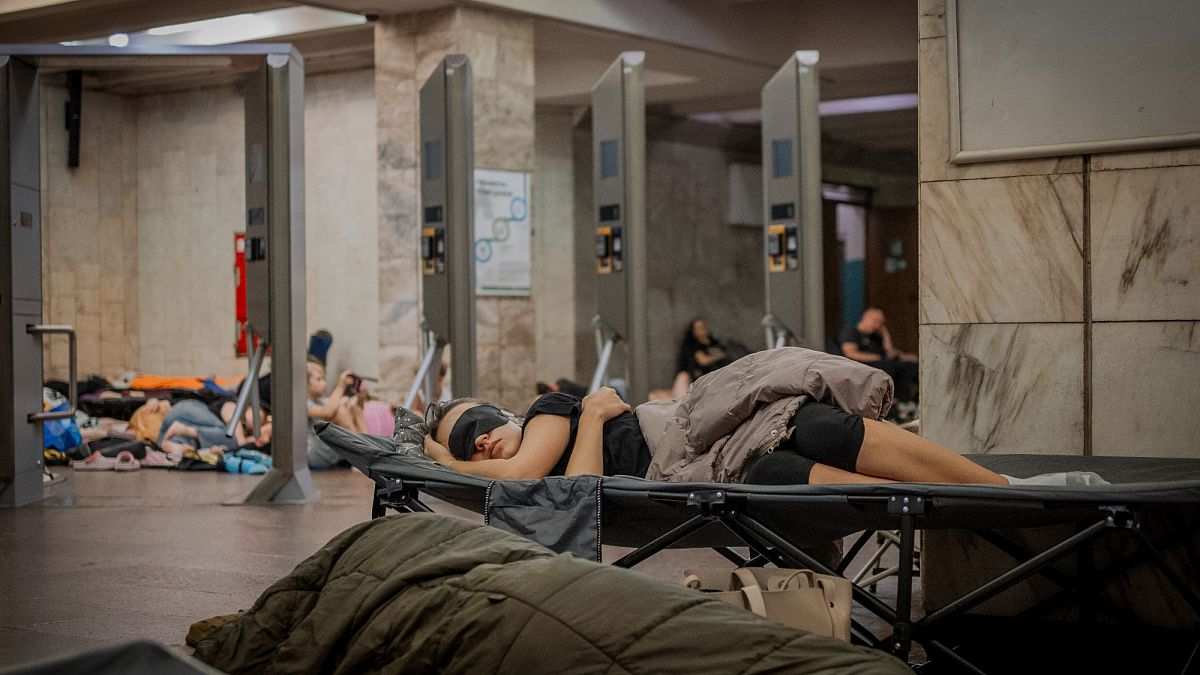

In recent developments across the globe, two significant regions are witnessing escalating conflicts with profound humanitarian implications. The ongoing strife in Ukraine and the humanitarian crisis unfolding in Gaza have captured international attention and concern. Although miles apart, these regions showcase the poignant reality of modern-day conflicts and the urgent need for a concerted global response.
In Ukraine, the capital Kyiv became the latest target in a series of Russian air strikes, resulting in injuries to at least eight individuals, including a child. The attack has caused substantial damage to infrastructure, with buildings and vehicles sustaining considerable impact. Despite the intensity and frequency of the strikes, local authorities have confirmed that no fires ensued from this particular assault. This incident is part of a broader ongoing conflict in Ukraine, with reports indicating over 150 combat engagements along the front lines in recent days.
Meanwhile, Gaza is grappling with a severe humanitarian crisis as aid efforts struggle to reach those in need. The Israeli military has introduced daily ten-hour “tactical pauses” aimed at facilitating aid delivery into the territory, yet reports suggest that these measures fall short of meeting the overwhelming needs of the population. The World Health Organization (WHO) and the United Nations (UN) have urgently called for significant and sustained aid to prevent a catastrophic health crisis. Currently, tens of thousands, including vulnerable women and children, urgently require aid, food, and medical attention.
This crisis is compounded by reports from two prominent Israel-based human rights organizations, B’Tselem and Physicians for Human Rights, who assert that Israel’s prolonged military actions in Gaza amount to genocide. Their detailed reports indicate a systemic targeting of Palestinian civilians, leading to irreparable damage to the fabric of Palestinian society. These assertions have sparked an outcry from international communities, emphasizing the legal and moral responsibilities of global powers in protecting human rights and preventing atrocities.
Beyond civilian casualties, which have exceeded 1,000 during attempts to access aid distribution centers, the situation in Gaza is marked by rising malnutrition and starvation, particularly among children. On-the-ground reports reveal the dire circumstances faced by Gazans, where access to food and essential supplies remains severely restricted due to the ongoing blockade. The World Food Programme (WFP) has highlighted the immediate need for nutritional support for approximately 90,000 women and children, underscoring a precarious future if substantial relief efforts are not mobilized.
In the face of these formidable challenges, the call for an international response resonates with increased urgency. The continued loss of life and the humanitarian toll in these regions demand coordinated action to navigate the complexities of conflict resolution, humanitarian assistance, and human rights protection. Movements in global diplomacy and cooperation will be pivotal in alleviating the suffering witnessed in these locales and fostering paths toward peace.
As the situation unfolds, the international community’s response will determine not only the immediate welfare of those affected but also the broader discourse on peace and conflict resolution in contemporary global politics.
Source: {link}
